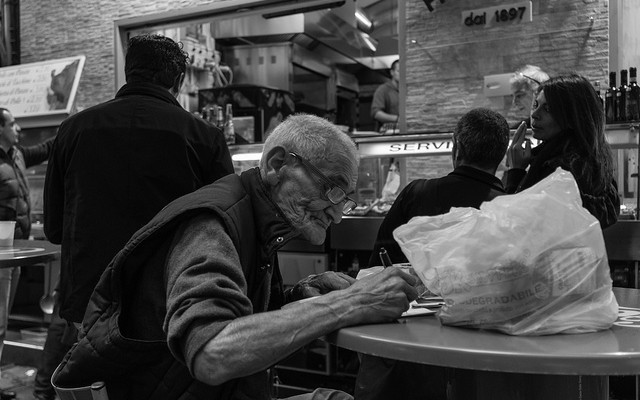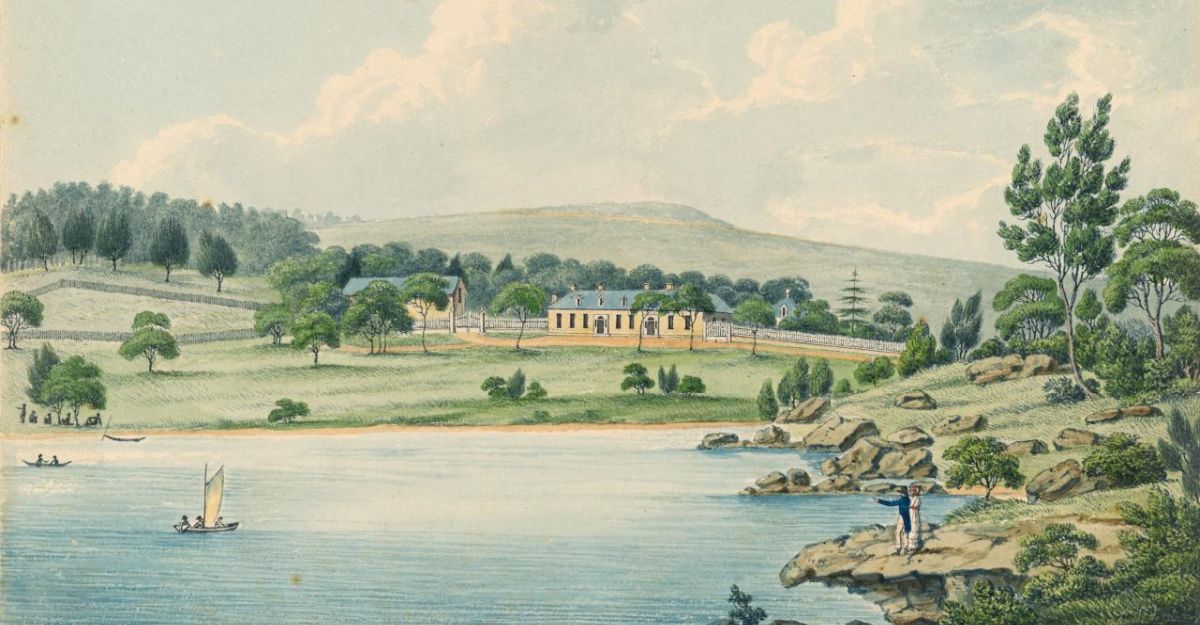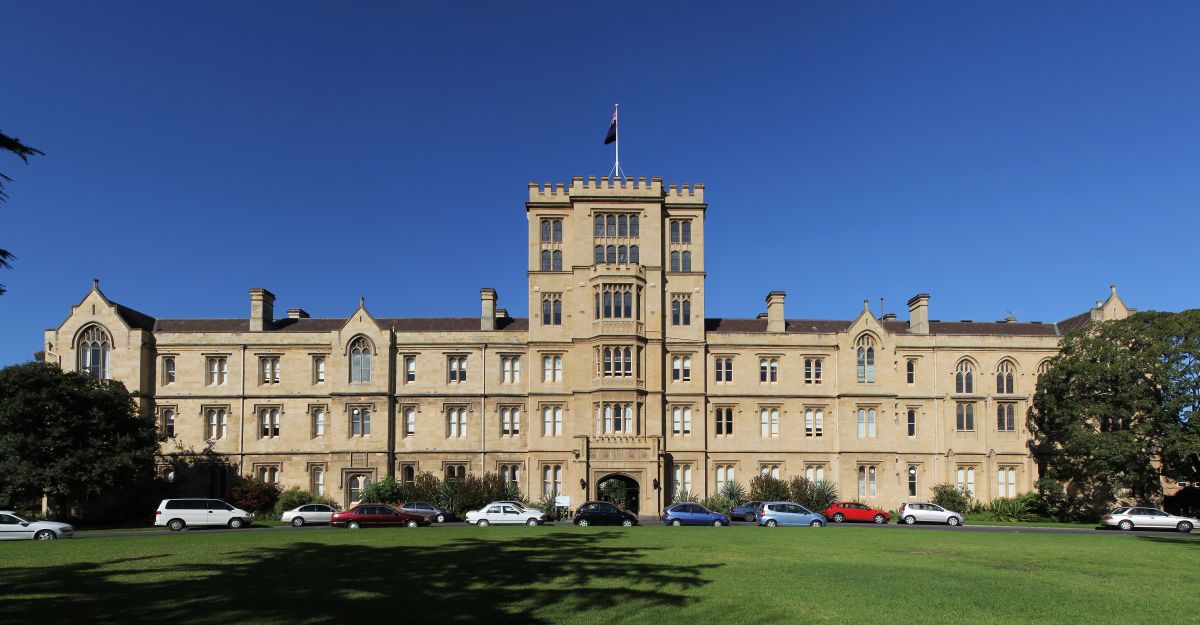I have an awful lot to show for the Master of Creative Writing, Editing and Publishing that I finished at the University of Melbourne in 2014. Truly I do. I have tens of thousands of dollars worth of debt, a rather small but tasteful gold-embossed certificate, and a relentless niggling feeling of having wasted both my time and money. Not least of all, however, I have in memory of my creative writing classes the Norton Anthology of Theory and Criticism, which sits heavily on my bookshelf.
When I first sat down to attempt the writing of this essay, I hauled that 3000-odd page white tome to my desk and flicked through its thin pages in the optimistic hope of finding a quote that would eloquently and concisely summarise its own indispensability to creative writing students. But it refused to open anywhere but underlined passages on feminism, indicating not necessarily studied course content but my own particular interests. I flicked on, doubtful I would find what I needed there, and on and on; but frankly I found it difficult to read when my eyes kept rolling back into my head. So, after a few more despondent minutes, I dropped the anthology to my feet, where it landed with a heavy thud. Evidently I find literary theory as impenetrable today as I did when I was studying it.
Literary theory is the ideas and methods available to you as a reader to analyse and interpret literature. Its study does not provide the possible meaning of a text, but the possible meaning through the lens of a particular field of study, such as psychoanalysis, structuralism, semiotics and queer theory; feminism, for example, could be used to gain a critical understanding of Charlotte Brontë’s Jane Eyre. But not all universities find it necessary to the study of writing. While bachelor and postgraduate creative writing degrees, such as the one I completed, may offer classes that consider this theory alongside, and in supposed complements to, creative writing, many vocational writing courses, as a consequence of their nature, leave it out altogether.
The literary theory classes I took hardly scratched the surface of its vast teachings and, to be honest, a lot of the time just left me scratching my head. And if the glazed-over expressions of my classmates during theoretical discussions were anything to go by, they largely felt the same. It was not uncommon for the class to descend into an uncomfortable silence if the tutor was slow to answer the question he had intended for us to dissect. ‘How many of you have actually done the readings?’ he might venture. The show of hands was never more than a few. Our lack of engagement, in stark contrast to when it came to workshopping, was doubtfully a reflection on our abilities or willingness to learn, but our difficulty in perceiving the practical application of this theory. Certainly it would make us better readers, and academics if that was what we wanted to become – but would it make us more capable writers? And if so, how?
I had a lot of these sorts of questions when I graduated, so I went to one of my tutors and asked him, point blank, what was I supposed to do now? Was I just supposed to keep writing, as I had done before I had started my degree? On what? For who? Under what guidance? Should I start pitching? And if so, how and to what publications? Would Googling help me? He listened patiently. I had been introduced to new theories and ideas in regards to literature, but I hadn’t been provided with vocational writing skills in the same way that my editorial and publishing classes had – and which had made me not only employable but capable. I had a few short stories – soulless in every way and cringe-worthy in their re-reading – and a 12,000-word thesis on realism. Let’s face it, more or less I had nothing. The question I really wanted answered was, had I chosen the wrong subjects or the wrong degree?
Fortunately, I had completed my Graduate Diploma in Editing and Publishing several years earlier and was already working as an editor – I’d managed to get my foot in that particular publishing door just as it was closing. For this reason, I wasn’t panicked about my career prospects, but I was certainly worried. The writing subjects and thesis that the completion of my master required were supposed to set me confidently on a new trajectory, even if it ran parallel to the one I was already on – but I’m still an editor and I have a writing portfolio so small I am embarrassed to show it to anyone. ‘Oh I write,’ I say to people. ‘But mostly just for myself.’
Three of the novelists longlisted for this year’s Miles Franklin Prize – Peggy Frew (Hope Farm), Myfanwy Jones (Leap) and Lucy Treloar (Salt Creek) – are graduates of RMIT’s Diploma of Professional Writing and Editing. This does not surprise me. Graduates of this highly regarded course already included acclaimed writers such Carrie Tiffany (Mateship with Birds) and Graeme Simsion (The Rosie Effect). I can’t help but wonder whether it was the practical tutelage they received during their PWE studies that gave them the extra nudge to turn the imagined into something physical, with a front, back and spine.
But, really, who’s to say their success has anything to do with their qualifications, whatever the nature, and not their individual determination, dedication, talent? Perhaps next year’s longlisted writers will include graduates with the same qualities from any number of Australian universities now offering creative writing degrees, including my own classmates. And, of course, there will always be those who never stepped into a writing class at all.
We can only be certain of one thing they will have in common, and it won’t be that they all own a copy of that Norton anthology. It will simply be that they all sat down and wrote. And this is something I have yet to do in a serious and dedicated way – and perhaps that’s the real source of the relentless niggling feeling I have.
Image: ‘Writer’, by Mario Mancuso / flickr
This is part of a series responding to our recent Pitch Page query about whether writers need literary theory, a topic that received an unusual amount of interest. Read the other two responses so far:
-
‘Writers need literary theory’, by Emily McAvan
-
‘Creative writing, theoretically’, by Alison Broinowski






